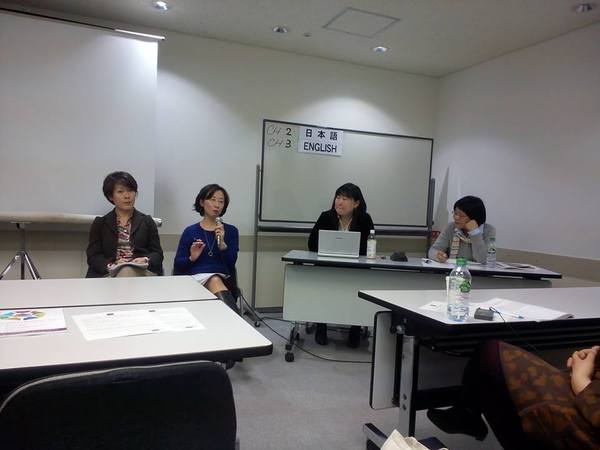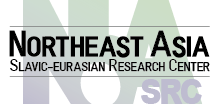The second panel at the "Redesigning the Asia Pacific Studies at Kyushu University" was on Gender and Migration, and Prof. Kim Yeun Hee from Daegu University in Korea and Prof. Seo Akwi from the Fukuoka's Women's University presented their works "North Korean Migrants in Perpetual Motion" and "Migrant Women and Transnational Feminist Movement in East Asia", respectively.
Prof. Kim's work examined the re-refuge of North Korean defectors to other third countries due to the discrimination that they face in South Korea and the difficulty in integrating in South Korean societies, and explored the possibility of looking at North Korean defectors as global migrants.
Prof. Seo examined the trend of feminization of migration in East Asia and the population and movement of women migrants in Japan and Korea. She also pointed out that empowerment of these women and the emerging of an transnational feminist solidarity.
The discussant of the panel, Prof. Naomi Chi, introduced the concept of "othering" which is any action by which an individual or group becomes mentally classified in somebody's mind as "not one of us". She pointed out that the grouping of people into certain stereotyped classes, who then are treated differently based on the classes they have been sorted them into, is a deeply rooted aspect of human nature.
She also illustrated that the politics of inclusion and exclusion can be seen in the treatment of North Korean defectors as well as women migrants in East Asia. The reason for this is because in both Korean and Japan, there is still a very strong notion of nationalism and being a homogenous society. Accepting difference or diversity seems still quite the challenge. However, she emphasized the point that the countries in East Asia have the lowest birth rates and rapidly becoming an aged society. Faced with this challenge, there is no choice BUT to accept migrants to the respective countries.
She concluded her comments by stating that instead of considering them as the "other" we must see them as a member of our community that will take on the social risks together. State intervention is necessary in so far as that to counter the various risks we face in today's world. This is what we can call a welfare state, where people, regardless of their race, gender, class, or ethnicity, can have agency, and as Amartya Sens states, focusing on the moral significance of individuals' capability of achieving the kind of lives they have reason to value.

(Left to Right): Prof. Yeun Hee Kim, Prof. Akwi Seo, Prof. Naomi Chi, Prof. Reiko Ogawa

 Eurasia Unit for Border Research (Japan)
Eurasia Unit for Border Research (Japan)




